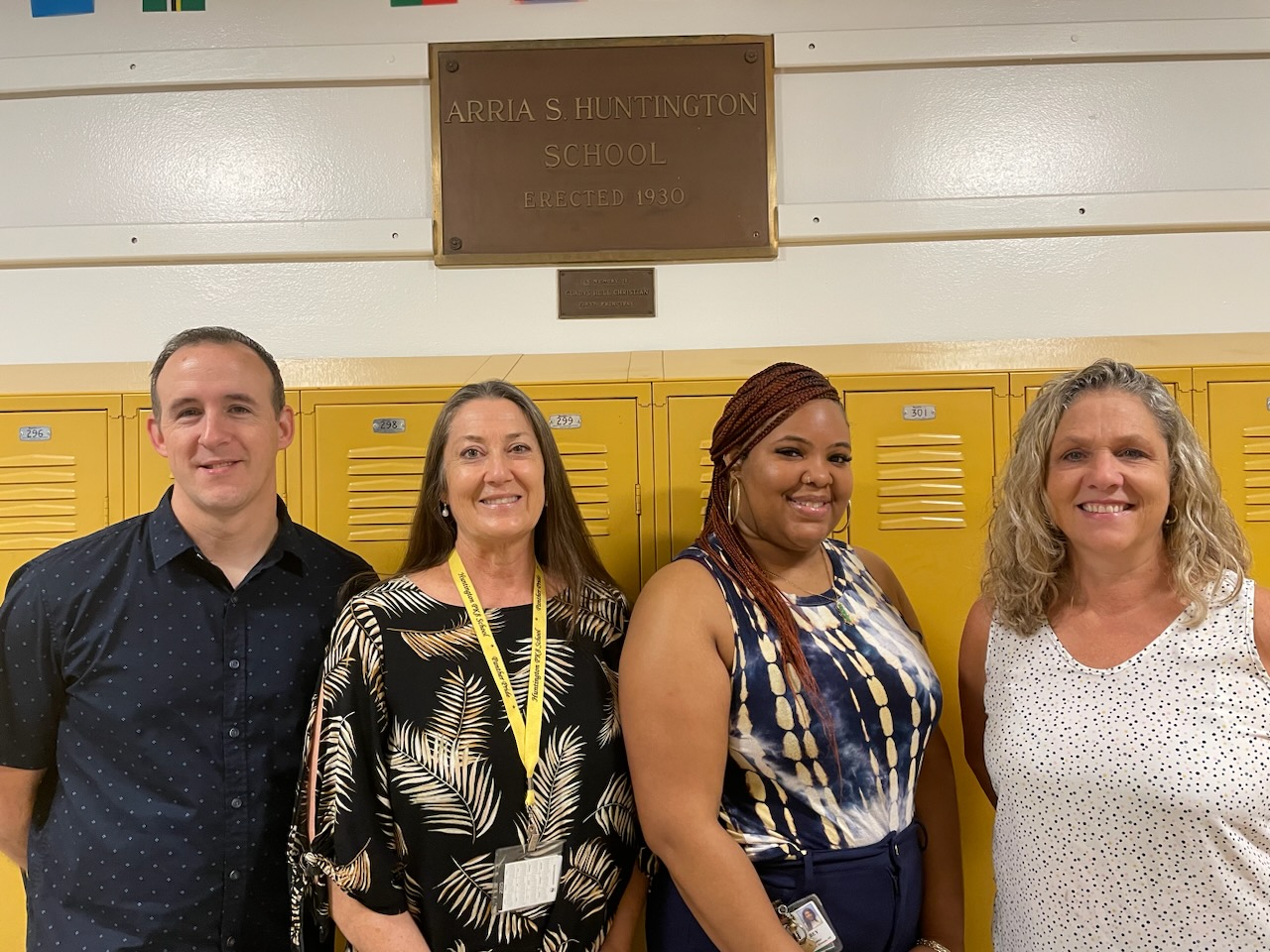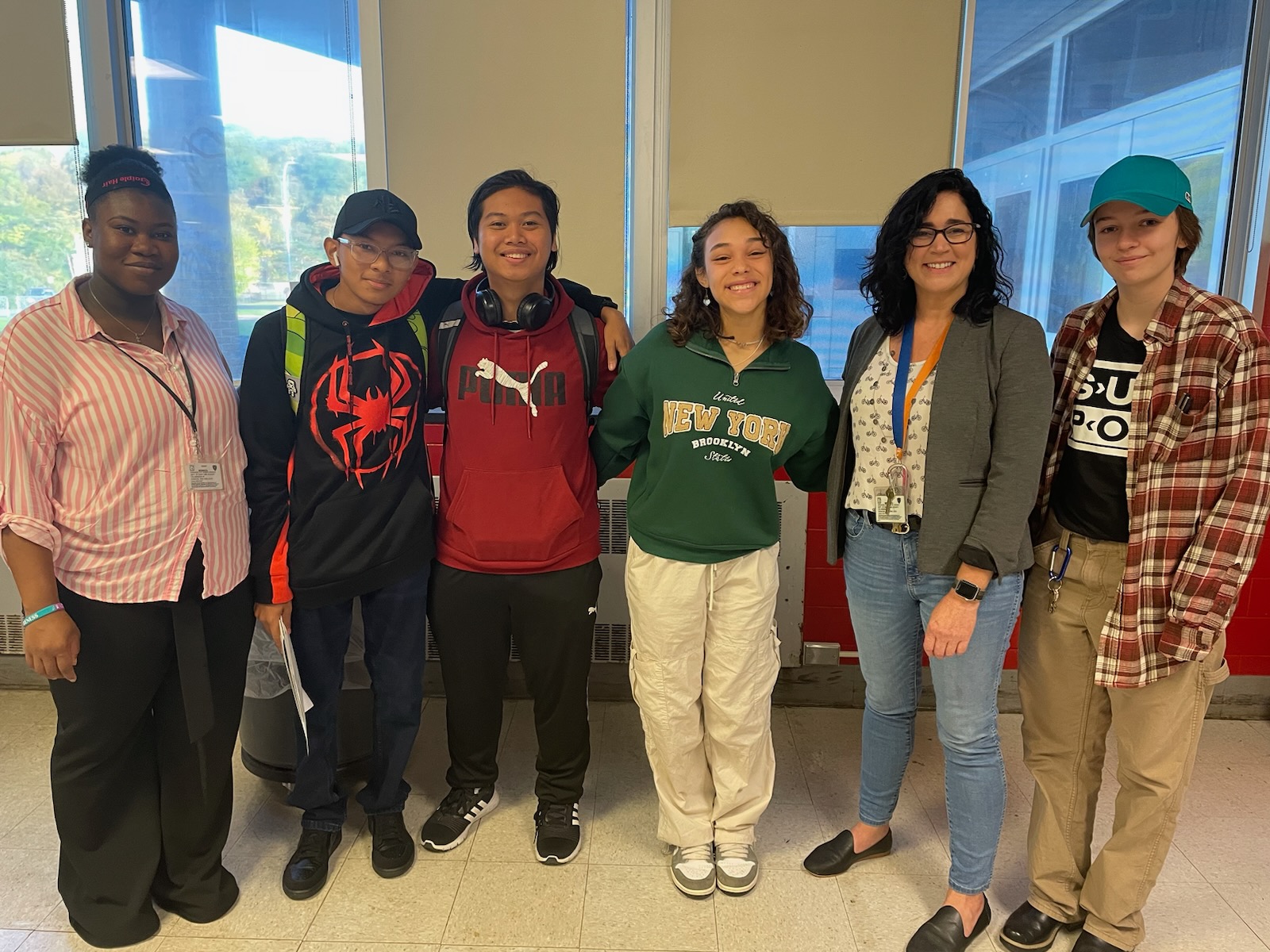The SCSD Office of Student Support Services is Here to Help Your Child Succeed!
Life can be hard.For both students and families, the SCSD Student Support Services team is here to help!
Who should your child contact if they have an issue with bullying? Who can help if you notice your child is having an issue with a school staff member? How do you find a pediatrician who accepts your insurance? What should you do if your housing situation abruptly changes?
Our tiered system of supports can help support students and families through any needs that may arise – from attendance concerns to parenting questions, community resource referrals, guidance and counseling, and more.
Families are encouraged to contact their school’s main office as a starting point, where a school administrator can help determine the best staff point of contact for you. Families may also reach out to a School Counselor or Social Worker directly.
To learn more about the types of supports available in each of our SCSD school buildings, including examples of the roles and responsibilities of each of these support members, please see below. We look forward to working with you to help lead your child to success!
Tier 1: Universal Supports
Tier 1 supports are intended to be schoolwide and classroom practices that promote the development and practice of pro-social behaviors, self-discipline, habits of learning, and healthy well-being.
 Tier 1 support staff in the school building may include Dignity Act Coordinators, Student Support Center Staff, School Counselors, PAX Partners, Office of Family Engagement staff, and more.
Tier 1 support staff in the school building may include Dignity Act Coordinators, Student Support Center Staff, School Counselors, PAX Partners, Office of Family Engagement staff, and more.
Andrew Leonardo has worked as a School Counselor at Huntington Pre-K-8 School for the last 16 years. He said his primary role as a School Counselor is simple: to support students. Sometimes, that’s as simple as helping them open a locker, or providing a pencil. Others, it involves social and emotional support through individual or group counseling.
“Our sessions are brief and solution-focused,” Mr. Leonardo shared. “Our goal as school counselors is to get our students back into the classroom as soon as possible so they can continue learning; though if a student has more intensive counseling needs, then we try to support families in setting up counseling or therapy outside of school. As a school counselor, my greatest fear is often missing a student in need. If a student is in crisis, most of the time we notice because their behavior or emotional state is different than we are used to seeing. But sometimes, kids are really good at hiding how they’re really feeling. That’s when we depend on families to let us know so that we can provide support in school and make referrals for help outside of school as well.”
Evangelia Zavaglia is now in her 5th year as School Counselor at the Syracuse Latin School. She said that students and families should view Counselors – and Tier 1 supports – as a first point of contact for any issues or concerns they may have.
“We are here to be a listening ear and to address any issues that may arise,” Ms. Zavaglia said. “We need our students to come to school every day so they can learn and be successful. If a student is having any kind of issue, the collaboration with the family is so important. I encourage families to call about anything they may be going through – from an issue with a classroom teacher to a death in the family and everything in between.”
Tier 1 support staff can help in hosting student mediations, connecting families with additional resources in and outside of the school building, and more. In some cases, Tier 1 support staff like Ms. Zavaglia push into classrooms to offer lessons in things like self-control or feelings and emotions.
“I want every student in my school to know who I am, where I’m located, and that they can come to me with any issues they may have,” she added. “I want kids to feel like they belong… like they can come to me with any questions. The same goes for families: we want you to call us and keep the lines of communication open so we know what’s going on in your lives. Sometimes, families can feel overwhelmed – we’re here to see how we can help take some of that stress off of them. No question is ever dumb… we are truly on your side. If we don’t have an answer for you on the spot, we will find an answer for you. We are here to help.”
Tier 2: Targeted Supports
Tier 2 supports are intended to be targeted, coordinated supports to help match students’ social, emotional, and mental health needs to address the root cause of an issue.
Tier 2 support staff in the school building may include Special Education Liaisons, Social Workers, Section 504 Administrators and Liaisons, and more.

Molly Phelps is now in her 16th year as Social Worker at Van Duyn Elementary School. She said it’s important for students and families to know that these supports come without judgement – and that support staff have many resources available for both students and families.
“Families often reach out to us for several reasons – including food, shelter, clothing, questions about mental health, pediatricians, transportation, and more,” Ms. Phelps shared. “In the last couple of years, we have also seen a lot of families who are struggling to find adequate and permanent housing. It is important that we are on the same page with families so we can ensure that our students’ basic needs are met so they can be ready for school. Partnering with families gives us a better understanding of our students and how we can best support them so they can succeed!”
In addition to helping guide families, Tier 2 support staff can also provide skill-building lunch groups, peer mediations, behavioral incentives, grief/support counseling, and attendance initiatives.
“We can also assist families by connecting them with community-based supports,” Frazer Social Worker Regina Russo added. “I love being able to partner with students and families, whether it's sending home a little extra food to get through the weekend or supporting a student to achieve a personal goal. Celebrating small victories is so important! We have a lot of great supports at Frazer, including Family Support for Student Success, Promise Zone, Good Life, Peaceful Schools, ARISE mental health, Hillside, and a wonderful after school program.”
Tier 3: Intensive Supports
Tier 3 supports are intended to be intensive, specialized supports that are individualized to address the specific needs of a student. Comprehensive Student Success Plans are developed and monitored closely to help the student achieve their individual goals.
Tier 3 support staff in the school building may include Liberty Resources staff, Access Liaisons, School Psychologists, and more.
Katie Sebo has been a School Psychologist in the SCSD since 2018 and at HW Smith since 2021. She said school psychologists are equipped to work both directly with students and families, as well as on a consultant basis with teachers and school staff across many different domains, including academic, social, emotional, behavioral, and mental health needs.
“We work with the entire student population,” Ms. Sebo shared. “Most of the work we do can broadly be described as working with kids who are ‘having a hard time.’ Sometimes it’s a student who needs to be evaluated to determine whether they have a specific learning disability; sometimes it’s a student who needs behavioral supports within the classroom; or sometimes it’s a student who just lost one of their loved ones and needs someone to talk to. We don’t diagnose kids, but we do help families get connected to resources if we suspect their child might have a disability such as autism, attention-deficit/hyperactivity disorder (ADHD), oppositional defiant disorder (ODD), depression, or anxiety. School psychologists work closely with a lot of different stakeholders, and we have a lot of knowledge and experience about data-based decision making and evidence-based practices to share! We are trained to consult with school staff and families from diverse backgrounds, and we have extensive knowledge about childhood disorders. We can take that knowledge and use it to educate families and school staff about how to work with kids with these disorders.”
If you have questions or believe your child should receive these specialized supports, please contact your child’s main office as a starting point!
McKinney-Vento
Did you know that in an average year, about 1 in 20 SCSD students experience homelessness? Given our district enrollment, that could be one child per classroom districtwide.
The McKinney-Vento Act is a federal regulation aimed at ensuring that all students have access to education – and removing the barriers that homelessness can present when it comes to receiving an education.
The Syracuse City School District is dedicated to identifying students who are experiencing homelessness and providing them – and their families – with appropriate resources. Homelessness can be caused by a lack of affordable housing, family conflict, domestic violence, natural disasters, mental/physical illness, insufficient income, or other factors.
How does someone qualify?
The term ‘homeless child or youth’ refers to an individual who lacks a fixed, regular, and adequate primary nighttime residence. Is your home permanent, where you can come and go as you please, every night? Is your home attached to the ground? Does your home have heat, lights, and beds? Do you share your home with others due to a lack of housing? If you answered ‘no’ to any of these questions, you may be eligible for assistance through McKinney-Vento.
If I qualify, what are some of the things you can help me with?
Our McKinney-Vento team can provide basic necessities including toiletries, clothes, and food. They can also work with partner agencies including ACCESS to provide you with a support person who will help you navigate through the different systems that can help you, and work with you to create a plan to help you find stable housing.
In addition, our team can provide transportation for students who are currently living outside of standard SCSD locations, mental health services through Onondaga County, and more. Thanks to partnerships with groups like Soles 4 Souls, the Syracuse Police Department’s Police Athletic/Activities League, the Food Bank of Central New York, the CNY Diaper Bank, the USPS APW 257, and others, they are also able to provide students and families with other supplies on occasion.
How do I find out if I qualify and start the process to receiving support?
If your child is already enrolled in and attending the SCSD, please reach out to your child’s school social worker. You can also call our Office of Student Support Services at (315) 435-4131.
If you’re new to the SCSD and are preparing to enroll your child, you are encouraged to work with our Student Registration Department to fill out a housing questionnaire and move forward in the qualification process.


